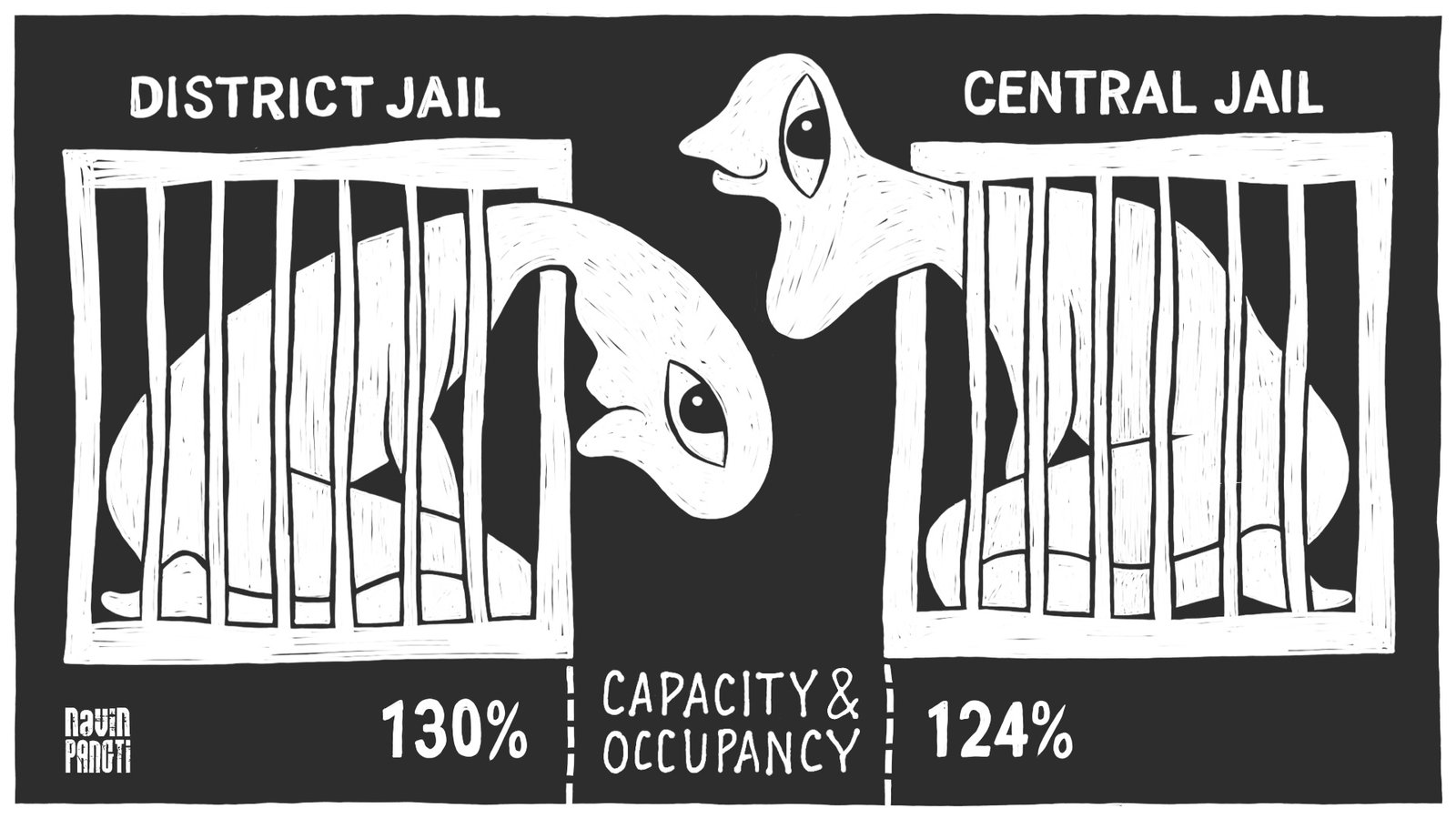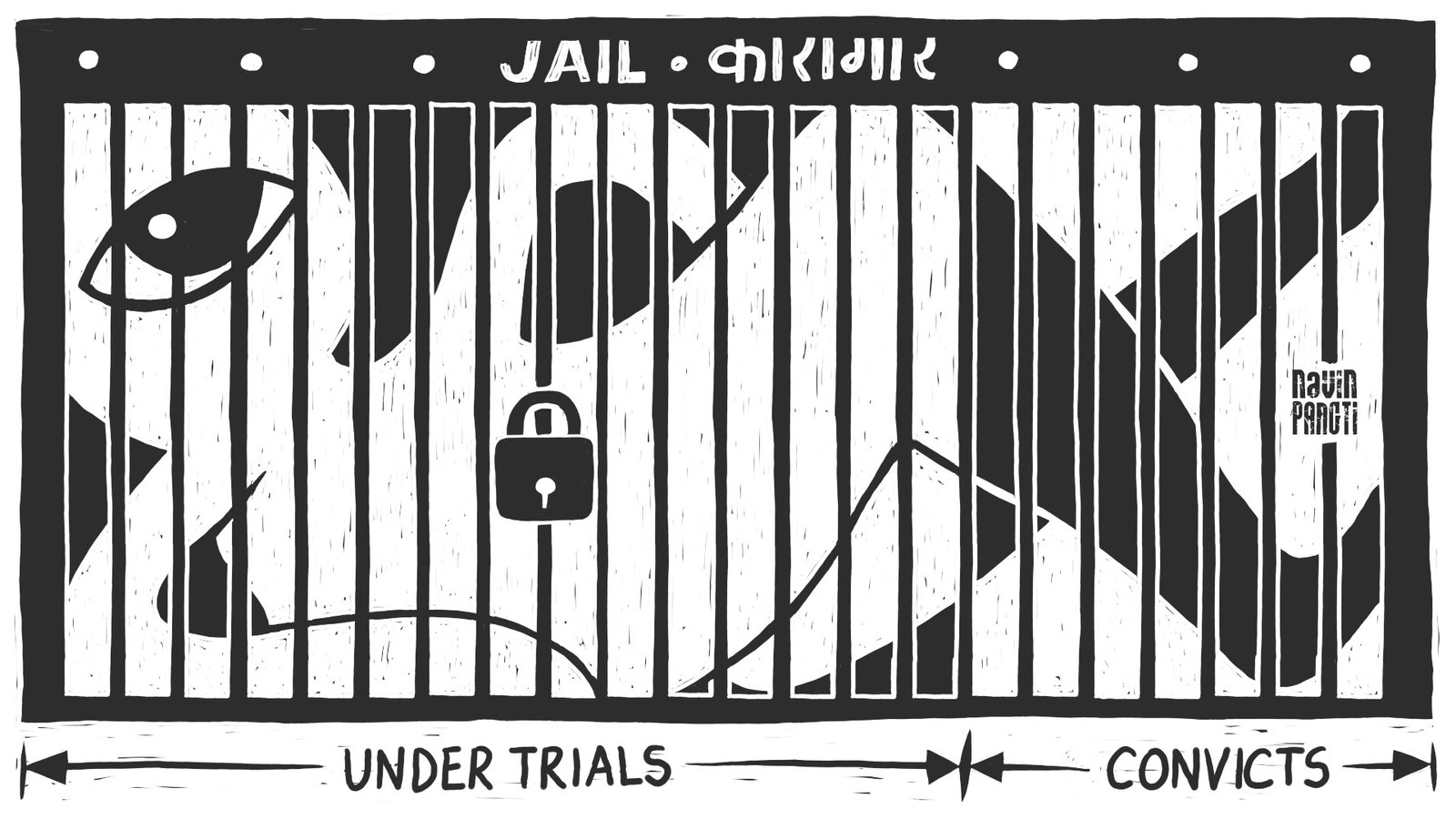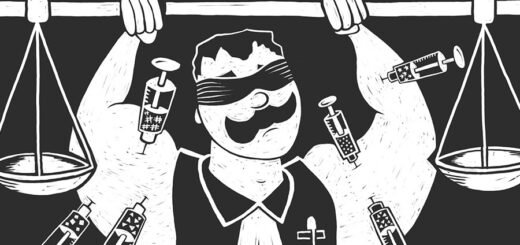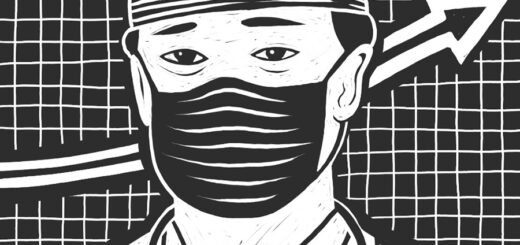Justice is your responsibility, Sirs!
When the actions of the topmost court come across as partisan and fruits of justice do not seem to be equally available to all then it is time to tell the courts that they have failed to deliver. It high time our courts ‘own’ the justice system.
Whenever the Supreme Court allows itself to take suo moto cognisance of a tweet which could have been ignored, or prioritise an ignorable man in lieu of numerous other injustices awaiting courts attention, then one is forced to believe that something is not right. It appears that the honourable court is neglecting its constitutional obligations.

Legal experts and the courts often quote the phrase – “Not only must Justice be done; it must also be seen to be done.” I think this quote kind of lays down the foundation stone of a functional justice system. When we talk about rule of law, it is not just about ensuring that law prevails. It is equally important to ensure that the citizens ‘know’ that law prevails. It is this belief that makes citizens feel safe and respect law.
The above-mentioned phrase, along with the following legal principles, pretty much defines one’s expectations from a working justice system –
- Justice delayed is justice denied
- Let Hundred Guilty Be Acquitted But One Innocent Should Not Be Convicted
Forget the conduct of the courts; governments own data seems to suggest that these legal principles have been tossed out of the window. Let us not talk about a man who can pull strings to get an out-of-turn bail. Let us not talk about those who languish in jail without any trial, for month’s altogether, almost as political prisoners of sorts. Let us just talk about those thousands of faceless people who are in jail, awaiting justice even while the top court has said, way back in 1978 – Bail, not Jail! A legal principle based on the Article 21 of the constitution which guarantees right to life and liberty.
Let us look at the data, which the court is unwilling to look at, or take ‘suo moto cognisance’ of. In doing so the court is coming across an accomplice of injustice rather than its arch enemy. For the records, the data being quoted below is of the year 2019 and published by National Crime Records Bureau, a government of India agency. All the statistics is available on their website https://ncrb.gov.in/. While NCRB data tables present some figures in percentages, others data points have been calculated based on figures made available by NCRB. In order to further simply data, it have been rounded off.

Let us start with the occupancy rate of Indian jails. While occupancy of Central Jails is 124%, District Jails fair even worse with 130%. If we take Open jails, Special jails and all other kinds of jails into account, we have an occupancy rate of 119%. Ever wondered why?

To seek an answer one will have to get into the details of the inmates. Out of all these people who are in jail, only 30% are convicts. An overwhelming 69% of the inmates are under-trials. In union territories this figure is approximately 80%.
If that is not shocking enough, let us move to the next level – the duration of detention. While 37% under-trials are in custody for up to 3 months, 38% are held in custody for duration of 3 months to a year. An unimaginable 26% of under-trials are in jails for duration of over 1 year. And to shame it all, 1.5% people are in custody for over 5 years. 11% of the total under-trials are above 50 years of age.
Does this data give any hint of existence of a justice system? And who do you think should feel responsible about this? Shouldn’t someone be getting more irked by these fact and figures rather than a tweet – here we are talking not just about the courts but also about attorney generals, law ministers, and everyone who has anything to do with this rather sad state of affairs.
If you are not perplexed enough, let me quote some more data. 21% of under-trials belong to the Scheduled Castes, 11% belong to Scheduled Tribes and 34% are from the Backward & Other Backward Classes. This pegs the collective representation of SC+ST+OBC at 66%. This almost feels like ‘reservation’!
Is this data not good enough for the courts to take ‘suo moto cognisance’? If no, then let us dig even deeper.

29% of the under-trials are illiterates and 41% never completed high school. 21% of them never got into any college. What this means is that 91% of under-trials never reached college. It is anybody’s guess which section of society these people in custody represent. It is not hard to imagine the kind of legal services available to them. And there are no points for guessing that almost all of them are clueless about the Article 21 of the constitution of India – a privilege available to a very few, who are capable to breaking the queue!
66% of the under-trials are Hindus while 19% of them are Muslims. If one was to correlate this data with the percent population figures of India then Hindus have 14% less, Sikhs have 2% less and Christians have 1% less representation in under-trial population. But Muslims have 5% high representation. It does look like an anomaly which the courts should have taken notice of, to ensure that all is well.
While giving bail to Arnab Goswami, Justice Chadrachud remarked –
If this court does not interfere today, we are travelling on the path of destruction. Forget this man (Goswami). You may not like his ideology. Left to myself, I will not watch his channel. Keep aside everything. If this is what our state governments are going to do to people who are to be nailed, then the Supreme Court has to intervene. There has to be a message to HCs – Please exercise your jurisdiction to uphold personal liberty. We are seeing case after case. HCs are failing to exercise jurisdiction. People are in jail for tweets!
Yes, tweets!
While the court acknowledges the miscarriage of justice, it fails to do anything about it as if it was some sort of consultant whose role is to analyse and recommend but not get personally involved. If the court has time for discussing tweets then why not something this serious? The defence lawyer in the case mentioned the bail plea of another journalist who was advised by the Supreme Court to approach the lower court. The court did not make any observations. By choosing to abstain from making a remark, the court, willingly or unwillingly, ended up legitimising the wrong & suggesting that ‘rule of law’ exists merely on paper.
The extraordinary urgent listing of the above mentioned case did suggest that law is a privilege. So much so that Dushyant Dave, President of the Supreme Court Bar Association wrote a letter to the Secretary General of the Supreme Court of India stating –
Why is this selective listing taking place when system is supposedly computerised and is to work automatically? Why is it that despite the same, matters are getting circulated and that too before only few Honble Benches? Why is there no foolproof system to be just and fair to all Citizens and all AORs?(AOR stands for Advocate on Record)
If such is the state of affairs at the Supreme Court, imagine how things move in the lower courts. Imagine an underage victim walking into the court room to testify under POCSO (The Protection of Children from Sexual Offences Act) when the law mandates hiding the identity of the victim. Imagine an investigating officer handing over the case file to the Public prosecutor and never meeting him or her again during the entire course of trial. In a case known to me, the accused was nabbed with 134gms of Narcotics (as per the FIR) under the NDPS Act. The case was listed and disposed with 7 days. The nature of disposal reads “uncontested”. To get off the hook appears to be pretty easy for the privileged. But the jails are still overflowing!
Supreme Court judgment, Civil Appeal No. 8950 of 2011, states –
In a country, which follows the Rule of Law, independence of the judiciary is sacrosanct. There can be no Rule of Law, there can be no democracy unless there is a strong, fearless and independent judiciary. This independence and fearlessness is not only expected at the level of the Superior Courts but also from the District judiciary. Most litigants only come in contact with the District judiciary. They cannot afford to come to the High Court or the Supreme Court. For them the last word is the word of the Magistrate or at best the Sessions Judge.
I wonder what prevents the honourable courts from walking the talk? Is there any data on how many lower court judgments are reversed by the High Court or Supreme Court? Has a pattern been identified? If no, then why not? If yes, then what has been done about it? Is there a relationship between class or status of the accused and the trial period? Is there an evaluation of lower court judges based on validation or reversals of their orders in higher courts?
From what appears, the lower courts are unwilling to take any ‘risk’ by granting bail in case of non-bailable offences. Bail, in such cases, is left to the discretion of the courts, to be decided based on merits and circumstances of the case. No wonder a senior citizen on wheelchair is also denied bail, thereby mocking the whole legal process.
Available data and news that overwhelm us on daily basis seem to suggest that justice is not being seen as done. That justice is grossly delayed. Jail, not bail, seems to be a norm, especially when the accusations seem to be politically motivated. Oft-quoted principles like ‘Not only must Justice be done; it must also be seen to be done’ and ‘Justice delayed is justice denied’ seem to have become mere lip service.
I can hear some people say, what can 30 odd judges of the Supreme Court do? Well, what stops them from ordering their own expansion or replication? What stops them from ordering expansion of lower judiciary? What stops them from putting in place various check and balance mechanisms?
My take as a citizen is pretty straight forward. It is better for the courts to spend time seeking solutions to complex problems rather than wasting time over a tweet by a stand-up comedian? I think the judges know it pretty well that the idea of justice and honour of courts is not defined by tweets but by the non-partisan actions of the courts then why…
I fail to understand what stops the courts from giving discrete guidelines on matters like holding people in jail without trial? What stops the courts from acting sternly against misuse of various acts for seemingly political gains? What stops the courts from taking very strict actions on matter of contempt – not the tweets or comments about the judges or courts but the writs passed by the honourable courts after much deliberation?
I wonder what stops the courts from ‘owning’ up the justice system and fixing it?
If the courts feel responsible for the justice system and want people to believe that the idea of justice exists then it has no option but to take ‘suo moto cognisance’ of these matters, and not the tweets, while ensuring that the queue never gets broken. If the courts really want to get their house in order then they have lot of ground work to do to ensure that an 83 old unwell man suffering from Parkinson’s disease, who has been denied bail, does not have to wait for 20 days for a reply that can grant him access to a damn sipper or straw for drinking water!















Really informative piece• One grey area is how to address the unjustified detention in subjudice cases•
what they call fast track should actually be the norm. whats the point of acquitting someone for murder after 3 year long trial and detention. simply put – it is illegal.